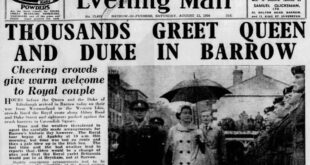
Royal Mail and DPD have issued a warning to customers about a fake delivery scam that attempts to trick recipients into handing over their bank details.
The fraudulent message appears to be from the Royal Mail or DPD delivery service and urges people to reschedule a delivery of their Christmas parcels.
Reschedule delivery
The fake message states that a parcel was attempted to be delivered, but no one was home, or there was no safe place to leave it. Recipients are then asked to follow a link where they must prove their identity and enter their bank details to reschedule the delivery.
Unwitting victims have then received a phone call from scammers pretending to be from Natwest, asking them for a cash transfer.
This follows a similar Royal Mail scam which was circulating in November, which involved fake texts or emails claiming customers needed to pay a fee of £1.99 to have an item redelivered. Again, recipients were then asked to enter their bank details online.
Warnings from Royal Mail and DPD
Royal Mail has issued a statement asking people who receive a suspicious email, or discover a fake Royal Mail branded website, to contact them.
Those who have been the victim of a payment scam can get a crime reference number by reporting it to their local police station.
DPD has also issued a warning to customers, urging recipients to check the message has come from a valid email address before taking any action.
The delivery company only emails from one of three email addresses. These include:
- dpd.co.uk
- dpdlocal.co.uk
- dpdgroup.co.uk
If the email has not come from one of these three addresses, it is likely to be a phishing scam and should be reported to report@phising.gov.uk.
In a statement, DPD said, “We have recently been made aware of a payment fraud scam requesting payment for the delivery of a parcel.
“Although this appears to be from DPD, the sender is a telenet email address – and not one of the three approved DPD addresses.
“Always check the ‘From’ section in an email and if it isn’t a valid DPD address, report it by contacting report@phishing.gov.uk.”
Warning signs to look for
Action Fraud recommends being wary of fraudulent emails and messages that:
are unsolicited and supposedly come from a reputable organisation, such as a bank or credit card companyencourage you urgently to visit a website or call a number to verify or update your detailsrequest your personal information such as username, password or bank account
If you do receive a suspicious message you should not reply to it, and be cautious about clicking on any links that may be embedded, or calling a number that may be provided.
If you have responded to a message that you suspect to be a scam and gave your bank account details, you should contact your bank immediately.
Source link



